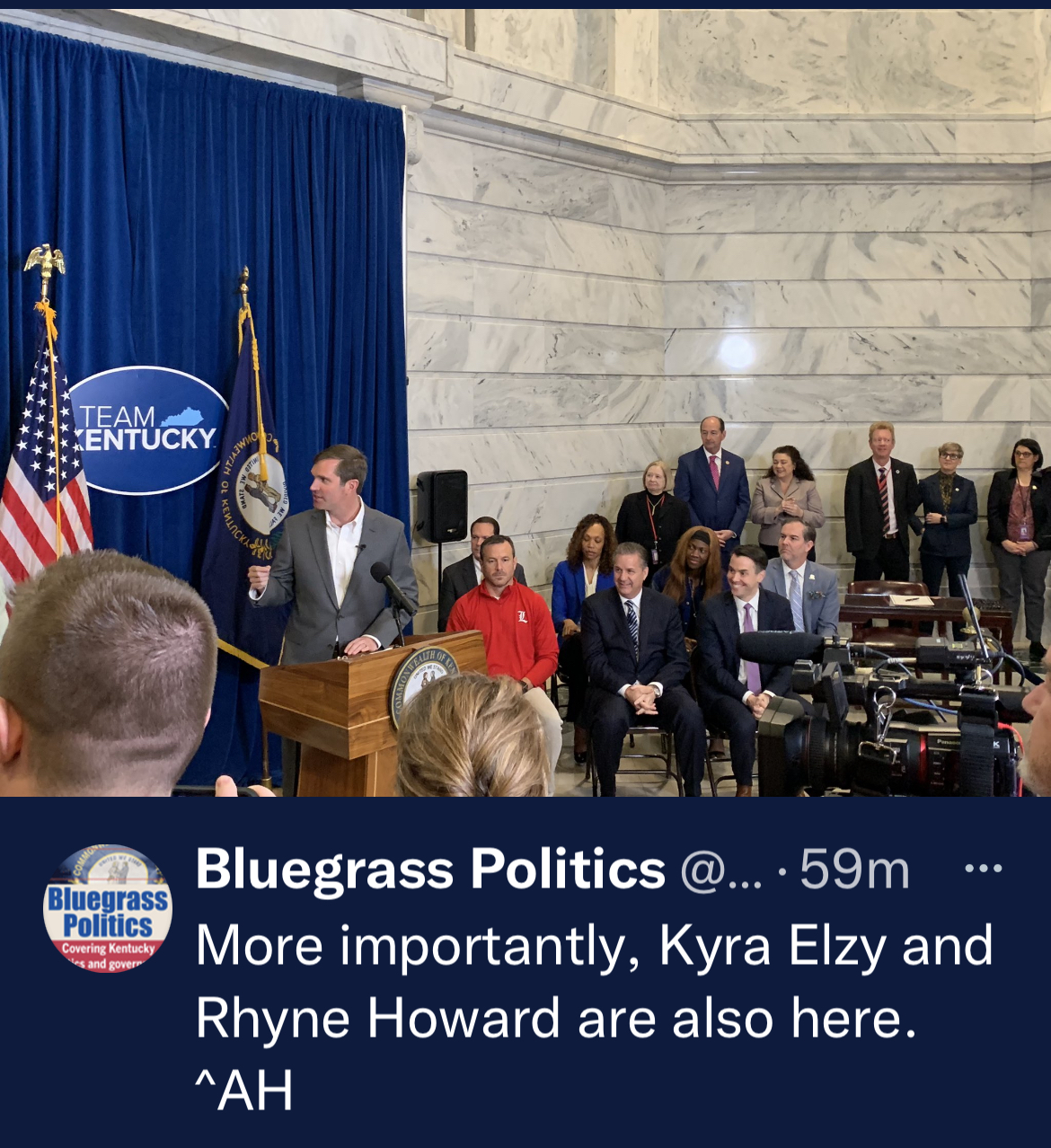
Kentucky has joined the ranks of an increasing number of states that regulate student athlete name, image, likeness (NIL) agreements — including public access to records relating to those agreements maintained by state universities — under a newly introduced bill.
Senators Max Wise (R-Campbellsville) and Morgan McGarvey (D-Louisville) filed SB 6 on January 11. The bill “creates new sections of KRS Chapter 164 to provide protections for student athletes seeking compensation through name, image, and likeness agreements or seeking an athlete agent [and ] provide similar protections for institutions.”
https://apps.legislature.ky.gov/record/22rs/SB6.html
The Governor signed SB 6 into law on March 9.
Section 4, sub (7) of SB 6 addresses access to NIL agreements maintained by state universities. It provides:
“For the purposes of the Kentucky Open Records Act, KRS 61.870 to 61.884, a NIL agreement submitted pursuant to subsection (2) of this Section to a public postsecondary institution and the information obtained from the agreement shall be considered as containing information of a personal nature where the public disclosure thereof would constitute a clearly unwarranted invasion of personal privacy under KRS 61.878 and not subject to disclosure.“
In November, Sportico’s Daniel Libit reported:
“The question of how disclosable NIL contracts should be had been wrangled over by some experts prior to July 1, the first day states allowed college athletes to profit from their right of publicity [under an NCAA rule change prompted by a United States Supreme Court June, 2021 opinion in NCAA v. Alston].
https://www.sportico.com/leagues/college-sports/2021/nil-georgia-lsu-fa…
https://www.insidehighered.com/quicktakes/2021/11/24/colleges-cite-ferp…
“In a May meeting of the Uniform Law Commission, an organization that crafts nonpartisan model legislation meant for widespread adoption, a committee debated including language that specifically precluded NIL deals from becoming public information. The ULC ultimately decided against doing so, on the assumption that there might be a benefit to these deals becoming public.”
As of late November, two universities — Louisiana State University and University of Georgia — have been sued by news organizations denied access to NIL agreements. Both universities relied on the Family Educational Rights and Privacy Act (FERPA) in denying the news organizations’ public records requests.
The federal agency charged with enforcement of FERPA has opined that the Act extend to the agreements. “Once a copy of the endorsement contract is provided to the institution and maintained by the institution, it becomes an ‘education record' because it meets this broad definition and is not an exception."
https://inf.news/en/world/6c33c530f4bb9be47383e086ea3a21bd.html
Legal experts disagree, among them Frank LoMonte, director of the Brechner Freedom of Information Center at the University of Florida.
Acknowledging that courts are too often disposed to resolve FERPA disputes in favor of educational institutions, LoMonte notes that FERPA protects student employment records relating to work that is reserved to “students” only — such as a graduate teaching assistant. An athletic endorsement agreement is not reserved to students only and therefore not protected as an “education record” under FERPA.
Kentucky’s SB 6 does not reference FERPA. Instead it cites the privacy exception to the open records law — KRS 61.878(1)(a) — declaring that NIL agreements “contain[ ] information of a personal nature where the public disclosure thereof would constitute a clearly unwarranted invasion of personal privacy under KRS 61.878 and [are] not subject to disclosure.“
https://apps.legislature.ky.gov/law/statutes/statute.aspx?id=51393
To the extent that SB 6 charges state universities with specific oversight duties, the Kentucky Open Government Coalition remains concerned about the public’s ability to oversee the overseers — to monitor, so to speak, the monitors — namely, state universities.
Under the privacy exception, the competing public and private interests are weighed against each other. In some cases, the balance tips in favor of disclosure. In other cases, it tips in favor of nondisclosure. Clearly, our law “exhibits a general bias favoring disclosure.”
https://law.justia.com/cases/kentucky/supreme-court/1992/90-sc-498-dg-1…
The public’s interest is premised on the public’s right to expect it’s agencies to properly discharge their statutory duties and the extent to which disclosure of records containing “information of a personal nature” advances the public’s ability to monitor the agency in discharging these duties.
As drafted, SB 6 sidesteps this analysis, declaring that NIL agreements, and records related thereto — including records identifying conflicts with university policy and how those conflicts are resolved — are “not subject to disclosure.”
Under SB 6, as enacted, state universities will not be accountable to the public in discharging this newly assigned statutory duty. Surely some public oversight — even limited oversight that is tailored to protect the athletes’ privacy rights — is warranted in these uncharted and potentially treacherous waters.


